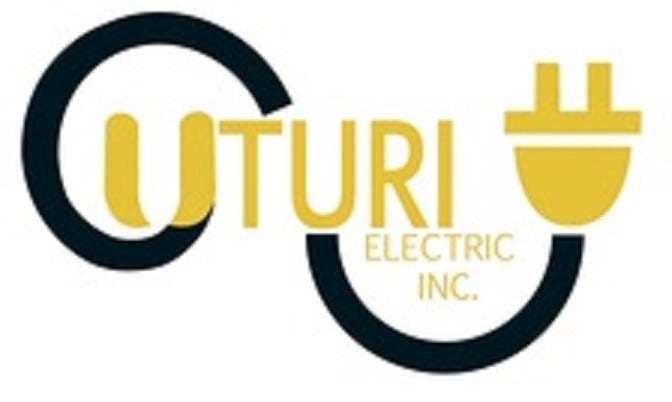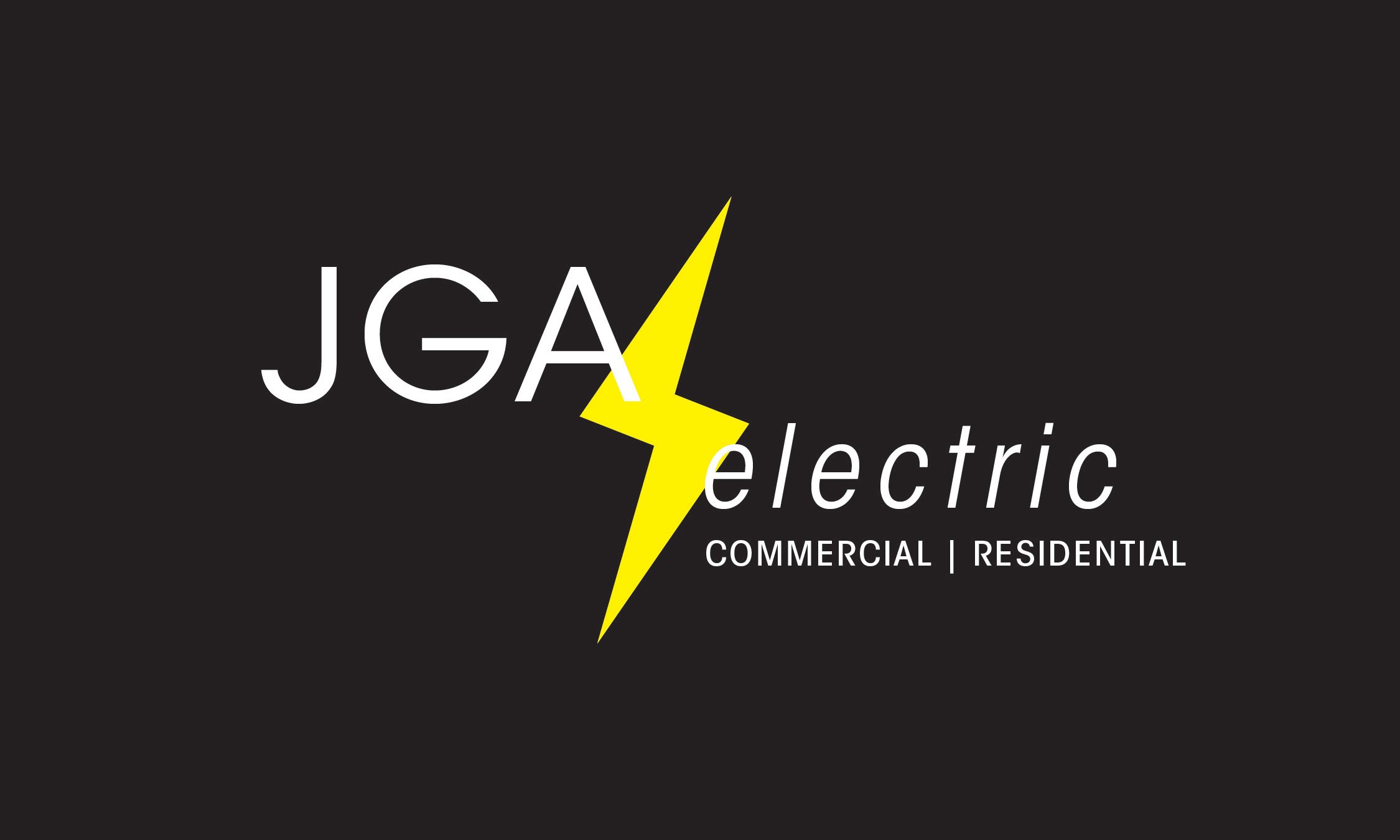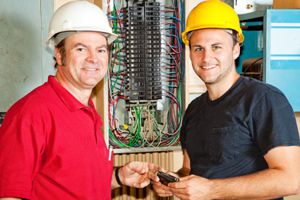Lightning Rod Companies Near You
Compare pros in your area - free!
How It Works
- Answer a few questions about your home project.
- Within seconds, get matched with top-rated local pros.
- Compare quotes and choose the best pro for the job.
Service Pros
"Amit and his electrician assistant were very friendly and did a great job. Our house is old and the job was difficult - but they made it work!"
Navid N. in November 2022
In business since 1982
Electrical
About us: "Express Electrical Services has been providing a comprehensive range of electrical services to the Los Angeles area since 1982. In the more than three decades since our founding, we have made our name in efficiency, effectiveness, and reliability. We have helped thousands of people during the years we have been in business, over 40% of whom became loyal, repeat customers. Whether your home or business is in need of minor repairs, a more extensive rewiring project and everything in between, we will provide you with upfront pricing before work ever beginswith no hidden fees! Our technicians are Californias finest, certified by the state to be the most well trained and knowledgeable electricians in the industry."

Electrical
"I will hire Uturi Electric for future work. Highly recommended."
Riel A. in June 2020
Panel Wiring
"Walter and his co-worker installed an outlet in our garage for an electric car. We received a quick response phone call to our request . Walter came to our home to assess the work that needed to be done and gave us an estimate. He promptly arrived a few days later to perform the work. We are pleased with the job performed by both Walter and his assistant. We highly recommend Mason Electric - friendly, professional and knowledgeable electricians. Thank you!"
Ken F. in October 2022

Title 24, Electrical, Industrial , and 2 more
"I had a poorly installed lighting fixture in my kitchen. It was working inconsistently. Jonathon inspected the fixture, saw that it was poorly installed, and told me that it posed a fire risk. Jonathon removed the fixture and replaced it with a much better one and I'm very happy with how it works and how it looks in the room. Jonathon was very professional, courteous, and made the entire process very easy. I strongly recommend!"
Alana B. in December 2013
Frequently asked questions
- An electrician’s cost per hour comes in between $50 and $100. It’ll vary depending on your location and the type or professional you hire. Areas with a higher cost of living can expect to pay on the higher end of that scale. Licensing level may also increase the price.
- Usually you’ll pay a higher rate for the first hour. This covers their travel and time expense. Emergency or after-hours rates are usually higher too – expect to pay an emergency fee of up to $300 plus a higher hourly rate.
Electricians do a fair amount of larger remodeling and new construction projects but also common residential projects including:
- Installing a light fixture or chandelier
- Installing a ceiling fan
- Adding an outlet
- Updating or replacing a circuit breaker
- Installing or updating an electrical panel
- Adding outdoor lighting and other electrical features
For cost information related to the above tasks, visit our Electrical Cost Guide.
- Do you have a license to perform electrical work in this state?
All states require an electrical license or work performed under a Master Electrician. You should also ask how many on the job hours of experience they have. - Do you have insurance?
Never use one who isn’t insured. You can ask to see proof of insurance. - Do you have prior work references?
You might skip this for small jobs like installing a light or outlet. For larger projects, always get references. - What are your rates?
Always ask up front. Getting a detailed quote up front is the best way to go. - Who is going to do the actual work?
Often, a Master Electrician will come out to diagnose and bid on projects, but they have their apprentice and journeyman electricians do the work. This isn’t a terrible thing, in fact it’s common practice. The Master’s license is on the line with any work he supervises. - Is your work warrantied or guaranteed?
Any reputable company or contractor warranties their work, usually for at least a year. - Are you usually on time?
Overbooking is a frequent problem with electrical work. Often, a service call goes long, and they end up showing up at your home late. This common complaint is easily remedied with an up-front and honest discussion. If they can’t be on time, make sure they’ll call.
A truly skilled, well-equipped professional with a truck full of parts that charges $100 an hour can be a much wiser choice than an inexperienced hack, working with inadequate tools and no parts, but charging much less. Often, more experienced professionals get the job done quickly with warrantied work.
2. Compare Travel ChargesRates reflect travel times. Travel charges can have a big impact on your costs and are in some ways easier to compare than hourly rates. Many electricians spend a third or more of their time navigating traffic on their way to a jobsite. Every contractor must find a way to pay for the expense of driving each day.
3. Bundle Repair Jobs TogetherWhen you feel it’s time to call a pro, review your list and then conduct a mini-inspection of your home. Look for faulty switches and dysfunctional or crowded outlets. When the electrician comes, you’ll save money and time by getting everything taken care of at once.
4. How to Prepare & What to Know Before the Electrician Arrives- Be as thorough and detailed in describing your needs to your contractor. The more they know, the quicker the job will go.
- Before they arrive, prepare a precise list of items you want serviced. Electricians have budgeted their time for a service call. They don’t have time for additional requests once they are on site.
- Make sure the electrical panel box is accessible. You’ll pay for the time it takes to access it.
- Clear away fragile items, knickknacks and furniture from areas where you expect the them to work.
- If you have questions about the project, ask them before they start. Most are happy to run you through the problem and the process of fixing it.
- Ask about potential issues after the work is complete. During a service call a professional will spot any potential hazards.
- You’ll lose power to parts of your home while they work. Be prepared to pause anything you’re doing during the service call.
- In most cases you’ll have the option to either pay at the time of service or have a bill sent to you. You’ll be able to pay with cash, credit and sometimes check.
- By switching from ordinary incandescent light fixtures or bulbs to fluorescent or LED ones, you can substantially reduce energy consumption in your home.
- Motion detector switches can help you save money on outdoor lighting while at the same time providing very cost-effective security to your home.
- Creative landscape lighting and indoor accent lighting can make your home more appealing to you, your guests and potential buyers in the future.
Related Projects in Los Angeles, CA
- Electrical Switches, Outlets & Fixtures - Install or Repair
- Electrical Wiring or Panel Upgrade
- Electrical for Home Addition or Remodel - Install
- Generator - Repair
- Light Fixture - Install
- Add a Sunroom or Patio Enclosure
- Add or Remove Holiday Lighting
- Aerate a Lawn
- Apply concrete finish, overlay, or coloring to existing concrete
- Apply Roof Sealant
- Assemble Furniture
- Build a Guest House
- Build an Addition
- Build an Outdoor Kitchen
- Build a Second Story Addition
- Build or Install a Wood Retaining Wall
- Build or Replace a Composite Deck
- Build or Replace a Deck or Non-Masonry Porch
- Camera Locate Breakage for a Plumbing System
- Clean and Seal Decks, Fences, Patios, Drives, or Porches
- Clean Gutters and Downspouts
- Clean House Interior (Maid Service)
- Clean Out a Sewer
- Clean Range and Hood
- Clean Up Job-site after Construction
- Clean Walls and Ceilings
- Clean Windows
- Clear a Clogged or Slow Drain
- Deliver Liquid Concrete
- Deliver Soil, Sand, Mulch and Rock
- Dethatch or Power Rake a Lawn
- Fertilize, Feed or Treat a Lawn
- Grade or Reslope Grounds for Landscaping
- Hire a Handyman
- Hire a Handyman
- Hire a Handyman
- Hire a Handyman
- Hire a Handyman
- Hire a Handyman
- Hire a Handyman
- Hire a Handyman
- Hire a Handyman for Your Small JObs
- Install a Barbed Wire Fence
- Install a Central Air Conditioning System
- Install a Chain Link Fence
- Install a Garbage Disposal
- Install a Lawn and Garden Sprinkler System
- Install a Putting Green
- Install a Range Hood
- Install a Retaining Wall
- Install a Shower Pan or Base
- Install a Steam Shower
- Install a Tankless Water Heater System
- Install a Walk In Bathtub
- Install a Window Air Conditioning Unit
- Install a Wood Fence
- Install a Wrought Iron Fence
- Install Carpeting
- Install Concrete Driveways & Floors
- Install Concrete Patios, Walks and Steps
- Install Interior Foundation Drains or Sump Pump
- Install Interlocking Pavers for Driveways & Floors
- Install Interlocking Pavers for Patios, Walks and Steps
- Install Laminate Flooring
- Install Luxury Vinyl Flooring
- Install Luxury Vinyl Flooring
- Install or Completely Replace Wood Flooring
- Install or Repair a Dishwasher
- Install or Repair a Fridge
- Install or Repair a Roof
- Install or Repair a Sink
- Install or Repair a Toilet
- Install or Repair a Washer
- Install or Replace a Bathtub
- Install or Replace a Bathtub
- Install or Replace a Central Humidifier
- Install or Replace a Chimney Cap
- Install or Replace a Driveway or Security Gate
- Install or Replace a Faucet
- Install or Replace a Flat, Foam or Single Ply Roof
- Install or Replace a Jetted Tub
- Install or Replace a Major Appliance
- Install or Replace a Major Electric Appliance
- Install or Replace a Major Gas Appliance
- Install or Replace a Microwave Oven
- Install or Replace an Aluminum or Steel Fence
- Install or Replace an Asphalt Shingle Roof
- Install or Replace a Shower
- Install or Replace a Smaller Appliance
- Install or Replace a Swamp Cooler
- Install or Replace a Vinyl or PVC Fence
- Install or Replace a Water Heater
- Install or Replace Flooring
- Install or Replace Landscape Curbing
- Install or Replace Metal Roofing
- Install or Replace Natural Slate Roofing
- Install or Replace Traditional Tile Roofing
- Install or Replace Wood Shake or Composite Roofing
- Install Plumbing in a Remodel or Addition
- Install, Repair or Replace Plumbing or Fixtures
- Install, Repair or Replace Plumbing or Fixtures
- Install, Repair or Replace Plumbing or Fixtures
- Install, Repair or Replace Plumbing or Fixtures
- Install, Repair or Replace Plumbing or Fixtures
- Install, Repair or Replace Plumbing or Fixtures
- Install, Repair or Replace Plumbing or Fixtures
- Install, Repair or Replace Plumbing or Fixtures
- Install, Repair or Replace Plumbing or Fixtures
- Install, Repair or Replace Plumbing or Fixtures
- Install, Repair or Replace Plumbing or Fixtures
- Install, Repair or Replace Plumbing or Fixtures
- Install, Repair or Replace Plumbing or Fixtures
- Install, Repair or Replace Plumbing or Fixtures
- Install, Repair or Replace Plumbing or Fixtures
- Install, Repair or Replace Plumbing or Fixtures
- Install, Repair or Replace Plumbing or Fixtures
- Install, Repair or Replace Plumbing or Fixtures
- Install, Replace or Repair a Main Sewer Pipe
- Install, Replace or Repair a Main Water Pipe
- Install Roof Heating Cable to Melt Snow
- Install Sod
- Install Stamped Concrete
- Install Synthetic Grass for Landscaping, Putting Greens, Play Areas, etc.
- Install Traditional Vinyl or Linoleum Flooring
- Landscape Yard or Gardens
- Lawn & Yard Waste Clean Up
- Level Concrete Slabs Using Injection Technology
- Mow Grass and Maintain Landscaping
- One Time Interior House Cleaning
- One Time Interior House Cleaning
- One Time Interior House Cleaning
- One Time Interior House Cleaning
- Paint Cabinets
- Paint or Stain a Deck
- Paint or Stain a Door
- Paint or Stain a Fence
- Paint or Stain Exterior Surfaces
- Paint or Stain Interior Surfaces
- Paint or Stain Single Items
- Paint or Stain Single Items
- Paint, Varnish or Stain Interior Surfaces
- Paint, Varnish or Stain Interior Surfaces
- Paint, Varnish or Stain Interior Surfaces
- Paint, Varnish or Stain Interior Surfaces
- Paint, Varnish or Stain Interior Surfaces
- Plan and Install Landscape Lighting
- Refinish Wood Flooring
- Relocate or Service a Window Air Conditioning Unit
- Remodel a Basement
- Remodel a Bathroom
- Remodel a Garage
- Remodel a Kitchen
- Remodel or Convert an Attic
- Remodel or Renovate One or More Rooms
- Remove a Tree Stump
- Remove Weeds
- Renovate or Repair a Home
- Repair a Deck or Porch
- Repair a Flat, Foam or Single Ply Roof
- Repair a Metal Roof
- Repair an Asphalt Shingle Roof
- Repair a Natural Slate Roof
- Repair a Tankless Water Heater System
- Repair a Tile Roof
- Repair a Wood Shake or Composite Roof
- Repair Laminate Flooring
- Repair Landscape Lighting or Outdoor Lighting
- Repair Luxury Vinyl Flooring
- Repair or Alter a Chain Link Fence
- Repair or Install Gas Piping
- Repair or Partially Replace an Aluminum or Steel Fence
- Repair or Partially Replace a PVC or Plastic Fence
- Repair or Partially Replace a Wood Fence
- Repair or Partially Replace Wood Flooring
- Repair or Replace a Sump Pump
- Repair or Resurface Concrete Driveways, Patios, Walks & Floors
- Repair or Service a BBQ Grill
- Repair or Service a Central Air Conditioning System
- Repair or Service a Clothes Washer or Dryer
- Repair or Service a Clothes Washer or Dryer
- Repair or Service a Dishwasher
- Repair or Service an Appliance
- Repair or Service an Appliance
- Repair or Service an Appliance
- Repair or Service an Appliance
- Repair or Service an Appliance
- Repair or Service an Appliance
- Repair or Service an Appliance
- Repair or Service an Appliance
- Repair or Service an Appliance
- Repair or Service an Oven or Stovetop
- Repair or Service a Small Size Appliance
- Repair or Service a Swamp Cooler
- Repair or Service a Water Heater
- Repair or Weld a Wrought Iron Fence
- Repair, Refasten, or Stretch Carpeting
- Repair Traditional Vinyl or Linoleum Flooring
- Saw or Remove Concrete or Masonry
- Seed a Lawn
- Service a Lawn and Garden Sprinkler System
- Treat, Protect and Maintain Trees & Shrubs
- Trim or Remove Trees and Shrubs
- Winterize or Activate a Sprinkler System
- Xeriscape a Yard
HomeAdvisor Community Rating
Los Angeles Electricians are rated 4.9 out of 5 based on 74 reviews of 74 pros.
The HomeAdvisor Community Rating is an overall rating based on verified reviews and feedback from our community of homeowners that have been connected with service professionals. See individual business pages for full, detailed reviews.
Other Top Projects in Your Area
Other Cities in California
If you're looking for Lightning Protection Install Contractors that serve a different city in California, here are some popular suggestions:
Find Lightning Protection Install Pros in Los Angeles, CA
Find Pros Nearby
- Nearest Moving Companies
- Licensed Electricians In Your Area
- Carpet Cleaning Services Near You
- Washer Repair Services Nearby
- Home Inspectors In Your City
- Basement Cleanout Services In Your City
- House Lifting Services In Your City
- Sunroom Repair Contractors Near You
- Heated Driveway Installers In Your Area
- Nearest Palm Tree Trimming Services
Lightning rods can make sense on any structure, but they are particularly beneficial to homes on the edges of bodies of water, houses on flat land or mountain tops with few if any other structures nearby, and tall buildings in urban areas. Having a lightning rod does not mean that lightning is attracted to your home. However, if lightning does strike, the rod gives the electricity a fast, low-resistance, and effective path to the ground, helping to prevent damage, electrocution, and fire.
The rod, often referred to as a finial or air terminal, is just one part of a lightning protection system. It is typically made from copper or aluminum which are both conductive materials. A wire is connected to the rod that runs to a rod underground. Lightning rods are typically installed at the highest point of a structure, but some can be placed elsewhere or even on the ground. Those not placed on the roof need to be taller than the structure.
Installing a lightning rod should not be done by an amateur. To make sure everything is hooked up right, and to understand if you might need additional protection such as a whole house surge protector, it's best to contact a professional. Enter your zip code and HomeAdvisor will connect you with lightning rod installers near you.
Do you provide these professional services?
Find out how HomeAdvisor can help your business
